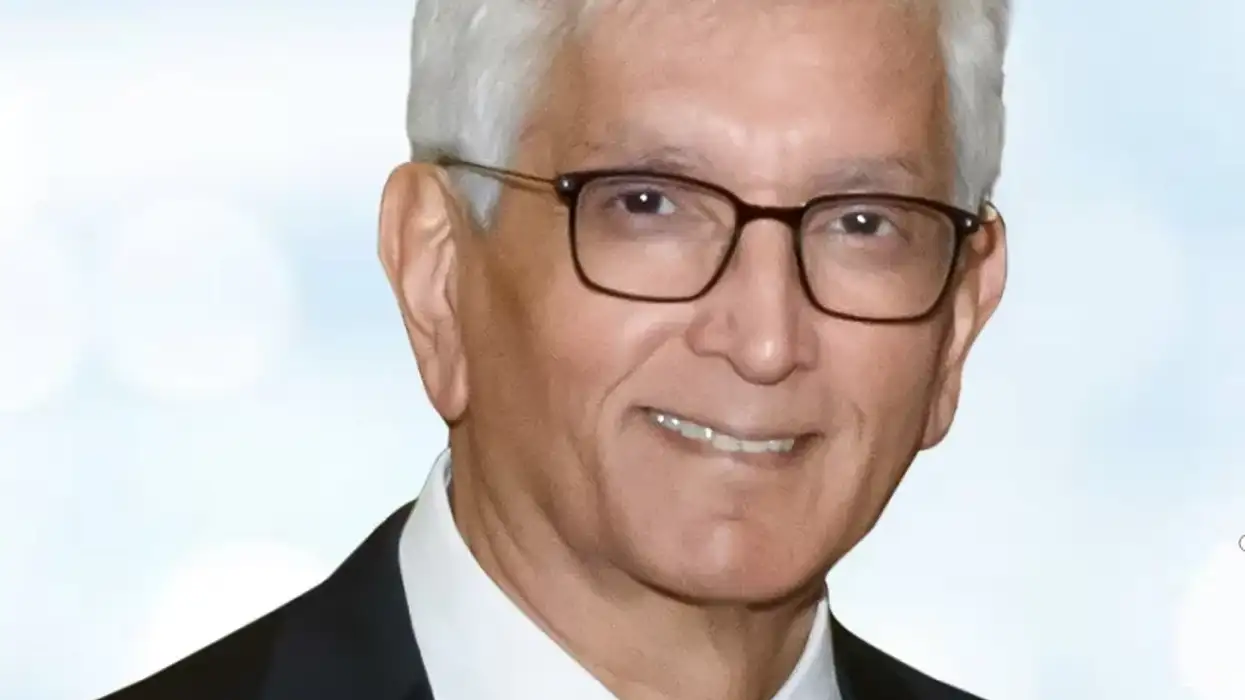Prominent British entrepreneur and Genisys Group founder Sir Ashok Rabheru died on Friday. He was aged 70.
The former trustee of the Duke of Edinburgh’s Award is survived by his wife Harshida and children Nikita, Rishi and Shayan.
Sir Rabheru was born in the eastern Tanzanian city of Morogoro on April 6, 1952, to Jivraj and Raliat and was ninth among 10 siblings - seven brothers and three sisters.
His father, originally from Verawal in the western Indian state of Gujarat, was a respected businessman and entrepreneur.
Sir Rabheru was sent on his own to England in 1967, aged 15 in the hope of having better opportunities and education and fleeing the dangers caused by political unrest in Tanzania. He had no money and didn’t speak English at the time. He studied in Richmond upon Thames, followed by Kingston College where he met Harshida. They married in Kenya in 1980. He earned his BSc in physics at University College London and obtained his MPhil in applied mathematics at the Royal Holloway College. He did his postgraduate diploma in computing at University College London (UCL).
He started his career in the IT industry and founded the Genisys Group, an IT software solutions and procurement company, in 1985. Beginning as a small five-person company in Woking, it has grown considerably and now has offices in three continents, employing more than 1,000 people.
He accompanied then prime minister Tony Blair on business delegations to Bangalore in 2002 and to Beijing in 2005.
The entrepreneur was a trustee of the Duke of Edinburgh’s Award from 2000 to 2010 and was a prominent member of the steering group for planning and raising funds for the 50th anniversary of the Award in 2006.
Since 2010, he held the position of chairman of the DoE UK and International Joint Funding Board. He also assisted in celebrating the centenary of Prince Philip, Duke of Edinburgh.
Sir Rabheru was an active supporter of several charities, including Combat Stress, Debra and medical research institutions such as University College London and Imperial College together with work within the Asian community. He also took pride in supporting smaller local charities such as Heart of Bucks, Pace Centre, Wheel Power and Wexham Park neonatal unit, which cared for his family when his triplets were born prematurely. He funded regular eye camps in Gujarat.
In recognition of his extensive charity work, he was awarded a CVO (Commander of the Victorian Order) in the 2011 New Year’s Honours List.
He was honoured with the crown appointment of Deputy Lord Lieutenant of the County of Buckinghamshire as someone who has served the local community and has a history of public service in other fields.
In 2022, he was awarded a Knighthood in Queen Elizabeth’s Platinum Jubilee Birthday Honours List. He became Knight Commander of the Royal Victorian Order in recognition of his work for The Duke of Edinburgh’s Award, which he had supported in various capacities for more than 25 years.
A memorial service to celebrate his life and legacy will be held at St James’s Church, Gerrards Cross
in the Spring. Details of the event are yet to be announced.
Genisys Group founder Sir Ashok Rabheru, 70, dies
In 2022, he was awarded a Knighthood in Queen Elizabeth's Platinum Jubilee Birthday Honours List. He became Knight Commander of the Royal Victorian Order in recognition of his work for The Duke of Edinburgh's Award.




